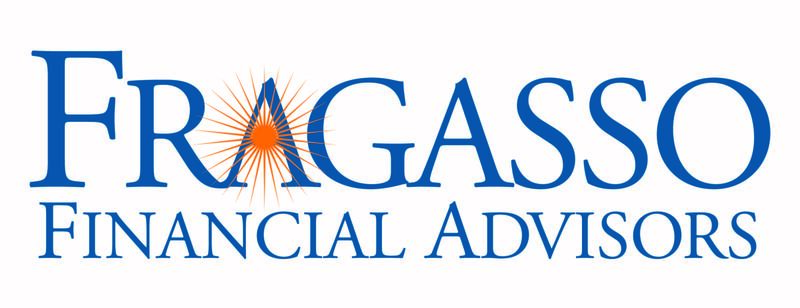If Kamala Harris is elected the next U.S. president in November, there are bound to be some changes on the horizon. Of course, this is the case regardless of the election’s outcome, as a new president could mean policy or regulatory changes, new incentives and other impacts to the economy and your wallet.
Learn More: I’m an Economist — Here’s My Prediction for Social Security If Kamala Harris Wins the Election
Check Out: Mark Cuban and Many Other Venture Capitalists Are Supporting Harris for President — Here’s Why
While it’s still unclear exactly how a Harris win could impact your spending habits, here are some of the possible changes.
Also see why you must speak to a financial advisor to boost your savings this year.
Earning passive income doesn’t need to be difficult. You can start this week.
Out-of-Pocket Healthcare Costs Could Change
A Harris presidency could impact your healthcare spending. Back in 2020, Harris advocated for such initiatives as Medicare for All, which is essentially an expanded version of Medicare that provides coverage for all people, regardless of health status or age.
More recently, however, she seems to have switched to a more cautious approach to healthcare. According to a KFF article written by KFF President and CEO Drew Altman, Harris’ proposals instead build upon the accomplishments under the Biden-Harris administration. This includes expanding access to private insurance plans and negotiating lower out-of-pocket costs for medication.
“Affordability is the central theme, not universal coverage or healthcare as a right (which also gets used), or value, quality, or access (favorite words in health care),” wrote Altman.
So, what do these more moderate healthcare proposals mean for the average consumer? For one, Harris has proposed a cap on out-of-pocket drug costs of $2,000 a year. She also has proposed insulin copays capping out at $35 a month. And she has advocated for canceling some medical debt.
If Harris is elected, and if she sees these proposals through, it could mean lower out-of-pocket expenses for the average American. However, it’s also possible for spending on preventive care or other medical expenses to increase.
Explore More: How Much Is Vice President Kamala Harris Worth?
Green Energy Initiatives Could Lead to More Incentives
When it comes to her stance on climate policy, Harris hasn’t been entirely clear just yet. That said, under the Biden-Harris administration, there was a good deal of support toward both climate and green energy initiatives.
Back in 2022, the Inflation Reduction Act was passed under President Joe Biden. This was an omnibus package that included $784 billion in funding for the country’s transition to clean energy. Harris was the one who cast the deciding vote in getting this package passed.
Harris also historically has backed the Green New Deal, which prioritizes the use of renewable energy. If elected president, it’s possible that she would continue to support similar initiatives that address climate change and sustainability in the U.S.
This could lead to more incentives to purchase energy-efficient home upgrades, solar panels or electric vehicles (EVs). For example, there’s currently a tax incentive of up to a $7,500 on qualifying EVs — available through 2032.
On an individual level, this could further promote spending in these areas, especially in states like New York or California where green energy has become more of a priority.
More Support for Childcare and Education
From the looks of it, Harris shares many of the same views as Biden when it comes to education, particularly higher education. In a tweet from 2018, Harris posted, “Almost all students understand the struggle of student loans. Enough. It’s time we make college tuition-free once and for all.”
Around that time, Harris also supported the College for All Act of 2017. This bill would have made public universities and colleges free to anyone earning less than $125,000 a year. Community colleges would have also become free — regardless of income.
While the College for All Act failed, the Biden-Harris administration has continued to support student loan forgiveness and similar initiatives. Under the current administration, billions of dollars in federal student loans have been forgiven for hundreds of thousands of borrowers.
It stands to reason that Harris will continue to promote accessible higher education, which could make it more affordable even to lower-income families.
In addition to that, Harris has advocated for increased funding for child care and early childhood education for working families. As part of her economic platform, she is also prioritizing the expansion of the federal child tax credit, which can reduce these families’ tax bill.
While not a direct impact on individual spending, these initiatives, credits and subsidies could free up some cash for families with children. This could also lead to increased optional spending in these areas.
More Disposable Income for Everyday Goods and Services
Disposable income is basically how much money you have after paying taxes. It’s used for essentials — like mortgage, rent, and food — and for nonessentials.
Harris has plans to raise the federal minimum wage and exempt tips from federal taxes.
“When I am president, we will continue our fight for working families of America, including to raise the minimum wage and eliminate taxes on tips for service and hospitality workers,” Harris said in a speech in Nevada in early August.
This could theoretically give people more cash to spend on other everyday goods and services. It depends on which policies are actually implemented, however, and how they might impact the cost of these goods and services.
Editor’s note on election coverage: GOBankingRates is nonpartisan and strives to cover all aspects of the economy objectively and present balanced reports on politically focused finance stories. You can find more coverage of this topic on GOBankingRates.com.
More From GOBankingRates
This article originally appeared on GOBankingRates.com: 4 Ways Your Spending Habits Could Change If Kamala Harris Wins in November








